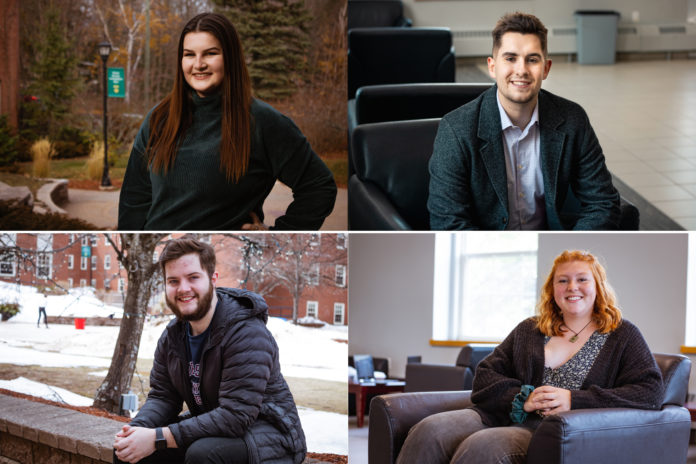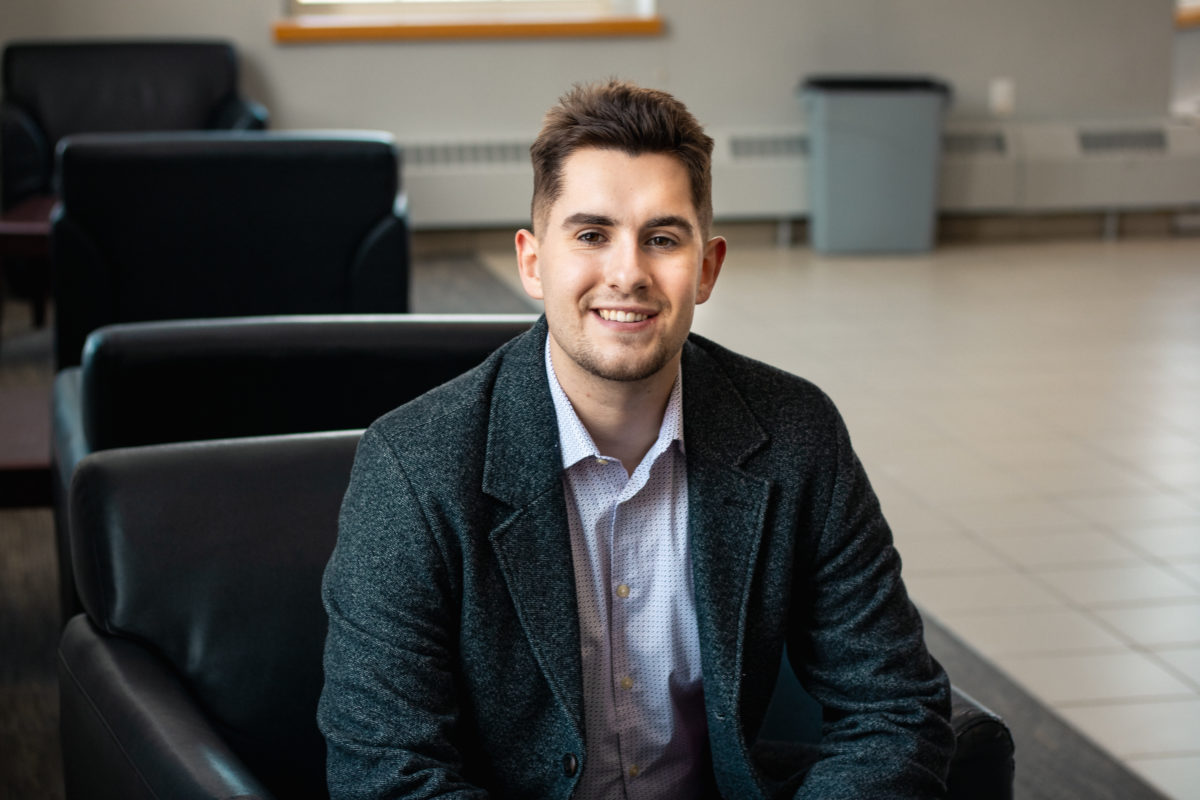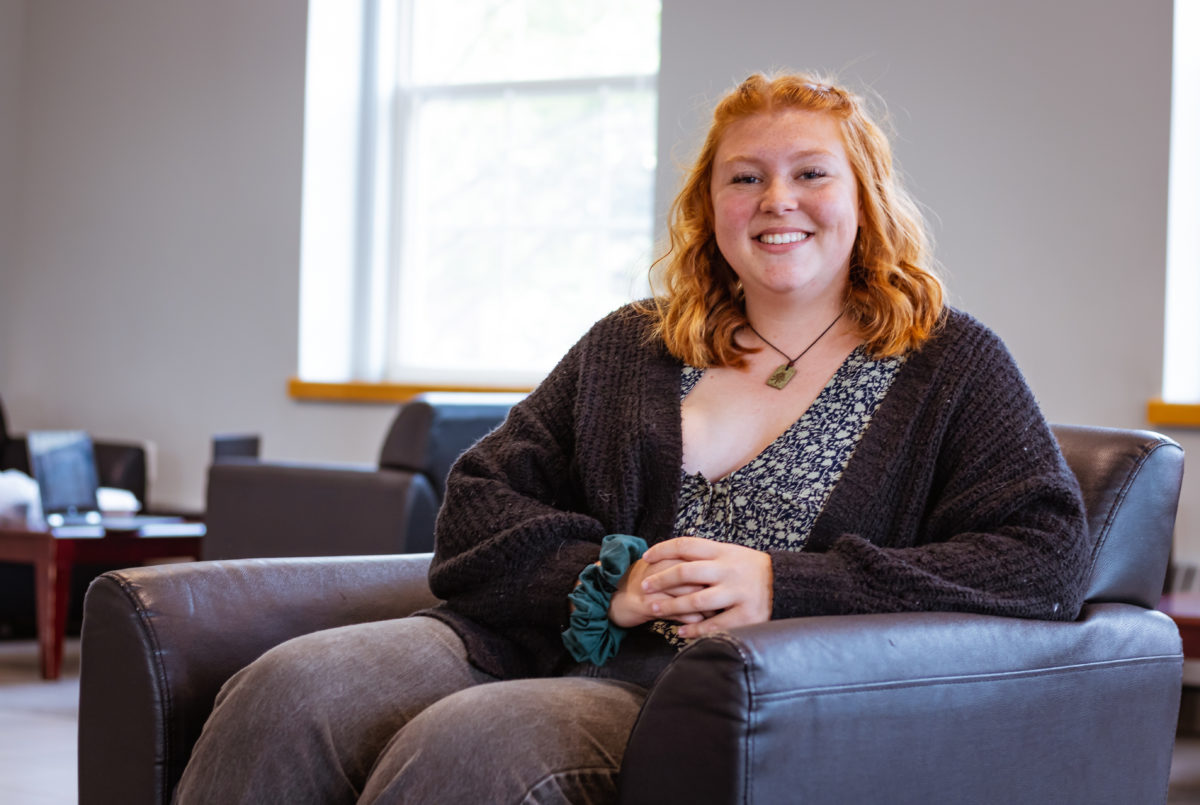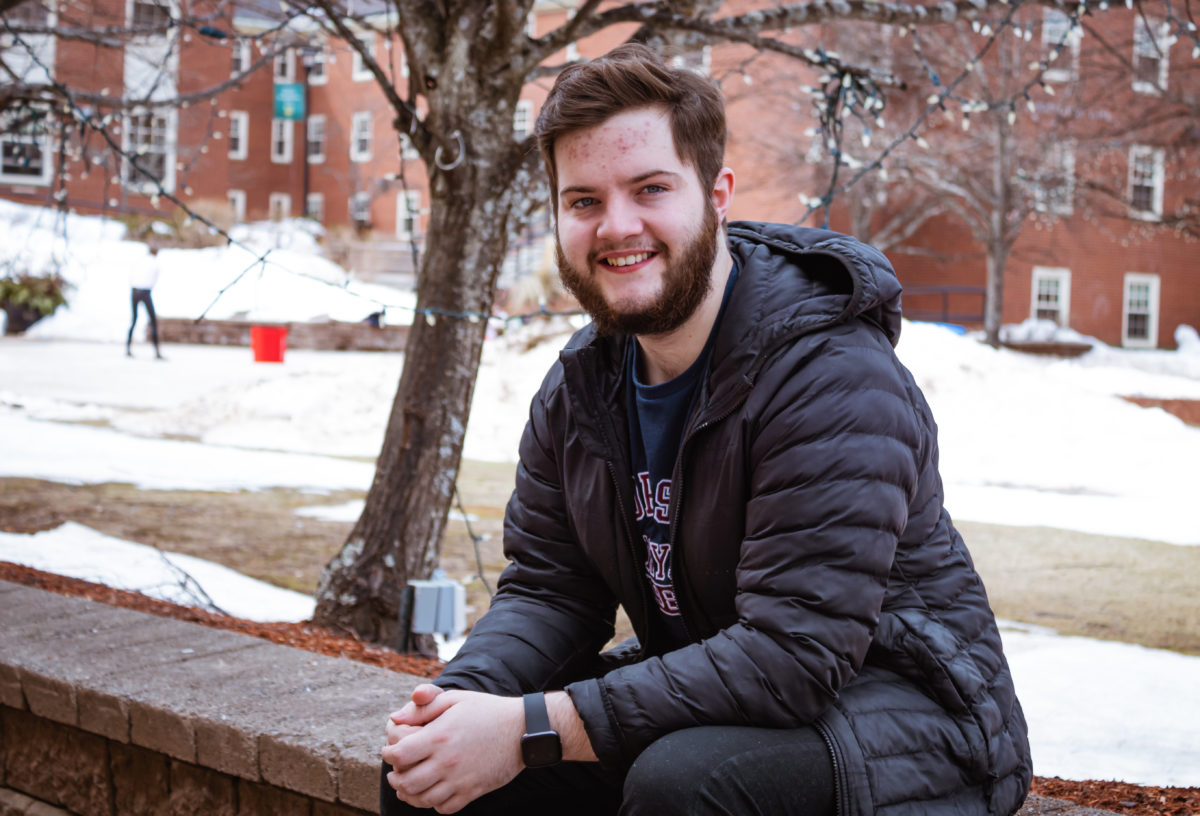

With the end of the first online academic year coming to a close, The Aquinian’s news editor Hannah Rudderham checked in with the St. Thomas University Students’ Union executives to see if they’ve fulfilled their campaign promises from last year’s election.
President – Sarah Kohut

Her three main platform points were promoting a supportive environment, approachability and accountability, and continuing student engagement.
In her term, Kohut:
- Met with almost all, if not all, student representative council members individually at some point throughout the year to talk about initiatives, give advice, troubleshoot and answer any questions.
- Supplemented an in-person SRC retreat with an online one in November along with an informal social bonding at the end of first semester.
- Held virtual office hours when the Help Desk was closed during certain COVID-19 recovery stages to continue to make STUSU executives approachable to the student body.
- Started “STUSU’s Top Five” where SRC updates were published on social media bi-weekly.
- Attended as many events as possible put on by SRC or other campus groups such as the Wall of Flags ceremony, the Black History Month events and the Indigenous Education and Awareness series.
Not yet achieved
- Kohut said she couldn’t continue former STUSU president Husoni Raymond’s monthly SRC update videos because it would’ve required people going out of their comfort zone with COVID-19 precautions.
Vice-president administration – Matthew Oram


His three main areas of focus were to enhance transparency of duties, support clubs and societies and magnify student engagement with the Students’ Union.
In his term, Oram:
- Came up with the idea while working with Kohut on the 2019-20 SRC to create Instagram accounts for each of the STUSU executives and made that a reality for this year’s executives.
- Did a clubs and societies information session.
Not yet achieved
- Oram said he wanted to provide public reports for SRC committees, like the finance committee, but because the workload wasn’t the same as previous years, he abandoned the idea for this year. But he is notifying next year’s vice-president administration in his transition document about the idea so she can implement it next year.
- Oram said before the end of the year, he wants to make the clubs and societies application process smoother by implementing a dropbox on the website.
- Oram said he will be hosting a brief budget town hall on March 31 to get student consultation on what they’d like to see implemented in the STUSU budget for next year.
Vice-president education – Megan Cormier


Her three platform points were accessibility, sustainability and transparency.
In her term, Cormier:
- Ensured everyone had access to online education in her work with the ad hoc senate committee for remote learning.
- Helped administer STUSU’s international student COVID-19 financial aid fund.
- Wrote a policy for the New Brunswick Student Alliance about international student financial aid that should be provided by the government.
- Held office hours specifically about remote learning so students could come and talk about issues related to mental health, keeping up with workload and isolation.
- Brought the Canadian Alliance of Student Association’s close the gaps campaign, a campaign for students to voice concerns about the pandemic and online school, to the SRC to get them to interact with it.
- Wrote a policy for the NBSA on systemic racism calling for New Brunswick to conduct an inquiry.
- Wrote a policy on sustainability for the NBSA, particularly on divestment. It called for N.B. and all post-secondary institutions to divest from fossil fuels.
Not yet achieved
- Cormier said she is finalizing recommendations for the university’s administration on how they can improve their environmental policy that was created in 2011.
- Cormier said she wasn’t able to create new understandable and easy-to-read STUSU updates because of the added work on her plate related to remote learning. But she did say she updated her vice-president education Instagram with campaigns and what was going on. She said she plans to leave a way to improve on this in her transition document.
Vice-president student life – Kyle McNally


His three platform points were to expand and increase mental health awareness, increase the vice-president student life’s transparency and continue to build a “campus pulse.”
In his term, McNally:
- Introduced an initiative to SRC to pass a jack.org chapter at STU, which would allow students to work to dismantle mental health barriers. The motion didn’t pass, but McNally said it looks like the initiative will be carried into the future.
- Collaborated with student services and STU Mental Health on meditation sessions that occurred in October and during STUSU’s Wellness Week.
- Planned a virtual STUSU Wellness Week in collaboration with the STUSU mental health committee, which he chairs.
- Implemented “Fast Fact Fridays” which share facts about sexual violence in collaboration with the sexual assault prevention committee.
- Reached out to around 50 businesses in the summer which allowed him to do three separate giveaways for students, which included STU merchandise.
Not yet achieved
- McNally is currently working on a social media campaign called “Let’s Keep Talking” focused on promoting mental health resources, debunking social media myths and talking about stress and burnout.
- McNally said he didn’t create bi-weekly social media releases about what he’s been doing but he said he used his vice-president student life Instagram account to advertise events and give updates on what he was doing.
- McNally said he attempted to partner with University of New Brunswick Students’ Union on a drive-in movie event but it didn’t end up happening because Fredericton went into the red phase.
- McNally said he recently suggested the idea of a graduate university fair to vice-president academic and research Kim Fenwick and for the rest of his term, he’ll work on a proposal for a graduate university fair to give to next year’s vice-president student life on May 1.
- McNally said he was unable to implement drop-in hours and evening snacks to meal hall because they are limited in what they’re cooking and their hours. He said during the next few weeks, he plans to look into those options for next year.
